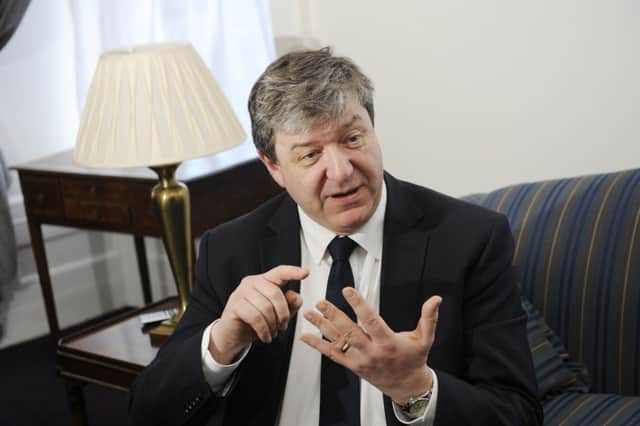Location switch in bid to oust Alistair Carmichael


A petition has been lodged at the Court of Session in the capital by four of Mr Carmichael’s constituents in a bid to oust him.
The former Scottish secretary has come under pressure to quit after admitting responsibility for a leaked memo written by a civil servant which wrongly suggested that First Minister Nicola Sturgeon wanted David Cameron to win the general election.
Advertisement
Hide AdAdvertisement
Hide AdCabinet Secretary Sir Jeremy Heywood ordered an inquiry after the memo, which claimed Ms Sturgeon told French ambassador Sylvie Bermann that she would prefer to see the Conservatives remain in power, became public.
Following the investigation, Mr Carmichael, who had insisted he was unaware of the memo, admitted that he had allowed his special adviser Euan Roddin to release details of the document which appeared in the Daily Telegraph on April 3.
The legal challenge is being brought under section 106 of the Representation of the People Act 1983, which makes it a criminal offence to release a ‘’false statement’’ about the character and conduct of an election candidate.
The case is thought to be the first election petition brought in Scotland since 1965.
It must be heard by two judges - Lady Paton and Lord Eassie - in a trial at the Election Court.
In a preliminary hearing before Lady Paton at the Court of Session, Jonathan Mitchell QC, representing the petitioners, said: “This is a case which to a large extent depends on issues of law and not, as is often the case, simply allegations of disputed fact.”
Mr Mitchell told the court there appeared to be “common ground” between the parties that statements Mr Carmichael made were false.
He added: “What appears however to be a possible question of law is whether these were in relation to the personal character or conduct of Mr Carmichael.”
Advertisement
Hide AdAdvertisement
Hide AdRoddy Dunlop QC, representing the MP, said: “If I’m right on the legal issues ... the Election Court would say there is no basis upon which to rule that Mr Carmichael’s election is void.”
The trial is usually held in the constituency where the election took place, unless the court is satisfied there are special circumstances for it to be held elsewhere.
Mr Mitchell said: “If we are in the realms of pure legal argument with no requirement for witnesses, it is more convenient that the matter be dealt with in this building sitting as a separate court rather than in Kirkwall Sheriff Court.
“It would be proper and convenient for the legal debate at least to take place here rather than us troop up to Orkney.”
Mr Dunlop agreed, adding that proceedings could be transmitted live by court cameras.
Mr Mitchell said questions could be raised about the status of an MP who was subject to such proceedings.
“I would be hopeful that this case could be dispensed of before September during the parliamentary recess,” he said.
Lady Paton continued the case until next Wednesday at 9.30am at the Court of Session.
Advertisement
Hide AdAdvertisement
Hide Ad“At that stage I would hope to make final arrangements for this trial to proceed,” she said.
As the judge was about to leave the bench, the proceedings were interrupted by a surprise intervention from Stuart Hill, a 72-year-old retired blacksmith and campaigner from Shetland.
Mr Hill attempted to challenge the jurisdiction of the court on the basis that “Shetland is not part of Scotland”.
But the judge told him: “I cannot hear any arguments that you want to make because you are not a party in these proceedings.”
In the wake of the memo fallout, Mr Carmichael apologised and said he would have resigned had he still been a government minister. He also declined his ministerial severance payment.
The MP was one of just eight Lib Dem survivors in the general election on May 7 but his majority of more than 10,000 was squeezed to 817 votes by the SNP.
A crowd-funding appeal to raise money for the legal challenge against his election raised more than £60,000.